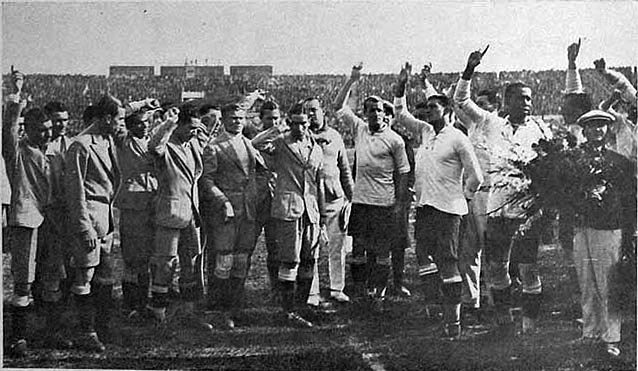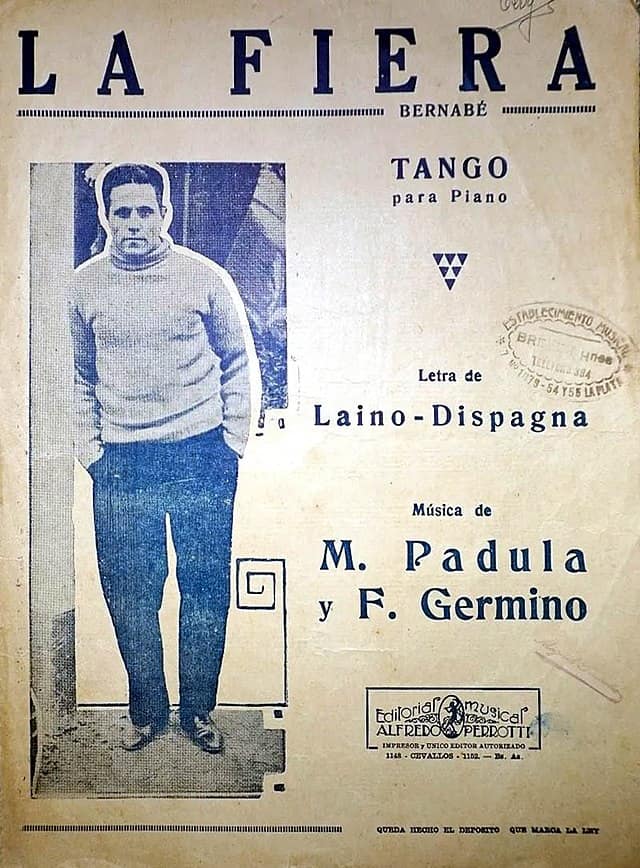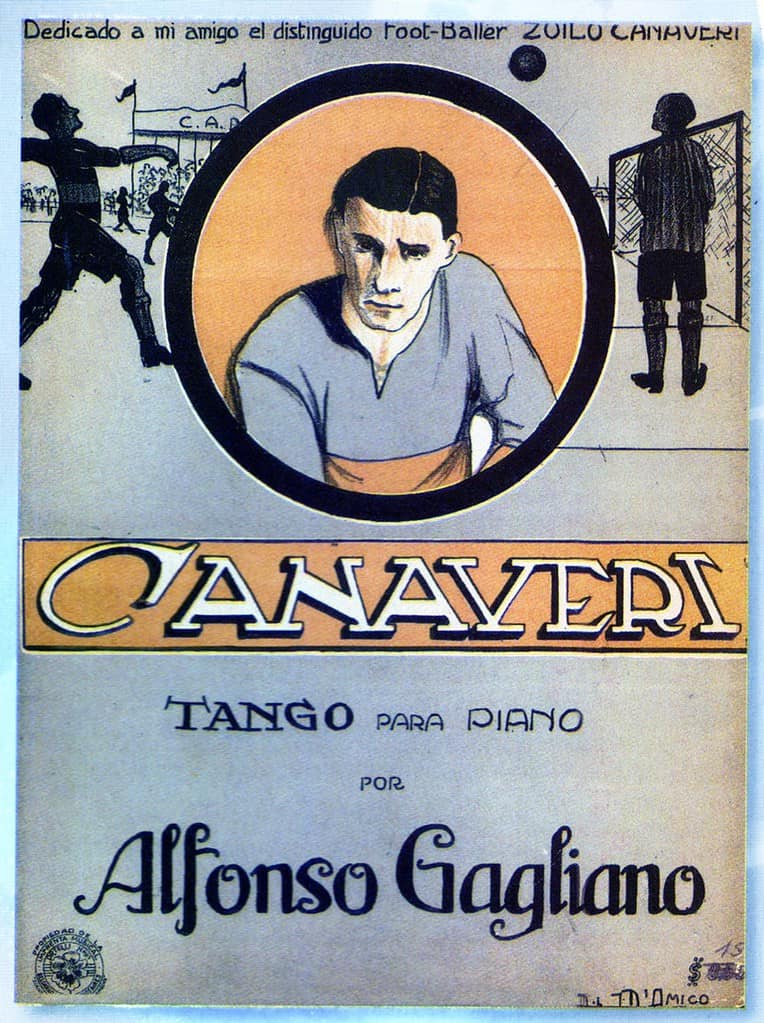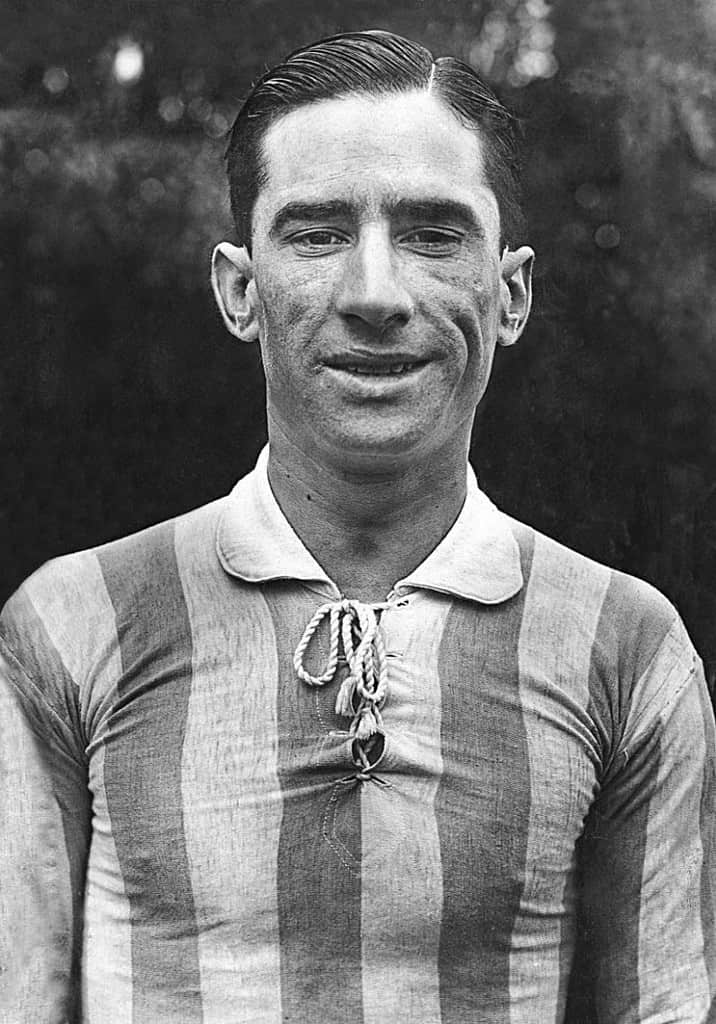Introduction
The relationship between Tango and football is deeply intertwined in both the Argentine and Uruguayan cultures. Both tango and football are integral parts of their identities, and they share a common passion and intensity. Little surprisingly, there are several Tango songs about football, including the song “Patadura” about Pedro Ochoa, which we will looka at in this article.
Table of Contents
Tango And Football in the 1930s
Tango and football are often seen as two of the most emblematic expressions of Argentine and Uruguayan culture, with both embodying the countries’ spirit of passion, skill, and improvisation. This was certainly true in the 1930s when Tango emerged as a leading cultural phenomenon on the shores of the Rio de la Plata. The cultural importance of football in Uruguay and Argentina during that time was immense.
The 1930 FIFA World Cup was held in Uruguay to celebrate the country’s centenary of independence and due to its successful performance in the 1924 and 1928 Olympic football tournaments, where they won gold3.
Uruguay was a dominant force in football at that time, having won gold in the 1924 and 1928 Olympics, and was considered by many the greatest footballing power of the age5, an opinion probably not shared by the Argentinian rivals.
Both countries were passionate about football, and the final match between Uruguay and Argentina in the 1930 World Cup was intense, reflecting the deep rivalry and passion for the sport in the region.

A tango about Pedro Ochoa
In the 1930s and 1940s, thousands of Tango lyrics were written and published every year, even though many lyrics were never picked up by a composer, performed in public, or immortalized on a recording. Many newspapers and magazines held poetry competitions, so it is not surprising that many aspiring writers reflected on their passions and put their love for football into a tango format.
One football player will be remembered because his talent and achievements inspired different tango poets, who left well-known songs dedicated to him. For aficionados of both tango and football, Pedro Ochoa represents this unique intersection.
Ochoa is remembered in Tangos like “Ochoíta,” recorded by Osvaldo Fresedo in 1928, paying homage to his skill and popularity. Another tango, “Patadura” by José López Ares and Enrique Carrera Sotelo, immortalizes Ochoa as the “crack de la afición” who baffled defenses with his passes and dribbles.
Why Pedro Ochoa
Born on February 22, 1900, in Argentina, Pedro Ochoa emerged as a football prodigy, joining Racing Club at the age of fifteen. His exceptional skills on the field quickly earned him the nickname “Ochoíta,” a moniker bestowed upon him by his friend Carlos Gardel.
Pedro Ochoa’s illustrious career unfolded primarily with Racing Club, where he played from 1916 to 1931, contributing significantly to the team’s success. Ochoa’s career reached its pinnacle in the second half of the 1920s, solidifying his status as one of Racing Club’s historical players.
Ochoa’s talents weren’t confined to the domestic scene. He played a pivotal role in Argentina’s triumphs in the Copa América held in Peru (1927) and the Olympic Games in the Netherlands (1928).
Most Important Tango Songs Related to Pedro Ochoa
- “Ochoíta”
- Recording Year: 1928
- Orchestra: Osvaldo Fresedo
- Singer: (Not specified)
- Details: This tango celebrates Ochoa’s exceptional skills and popularity, capturing the essence of his football legacy.
- “Patadura”
- Recording Year: (Not specified)
- Orchestra: (Not specified)
- Singer: (Not specified)
- Details: A tango that immortalizes Ochoa as the “crack de la afición,” renowned for baffling defenses with his passes and dribbles.
Other famous Tango songs related to football
“El Sueño Del Pibe” is a tango song that expresses the dreams of a young boy who aspires to become a football player. The song was composed by Francisco Canaro and Ivo Pelay in 1943 and has been covered by many artists, including Diego Maradona.
The lyrics describe the boy’s passion for football and his dreams of becoming a great player, despite the challenges and obstacles he faces. The title “El Sueño Del Pibe” translates to “The Dream of the Kid” or “The Dream of the Boy”.
Other tango songs about football are “La Fiera” and “Canaveri”.


Frequently Asked Questions about Pedro Ochoa
What is Pedro Ochoa’s most significant achievement?
Ochoa played a crucial role in Argentina’s victories in the Copa América (1927) and the Olympic Games (1928) while achieving domestic success with Racing Club.
How did Carlos Gardel influence Ochoa’s nickname?
Carlos Gardel, a Racing Club enthusiast, bestowed the nickname “Ochoíta” upon Pedro Ochoa as a tribute to his football prowess.
Notable Sources
- “Las 100 mejores frases del fútbol argentino.” Diario Clarín, 20 de abril de 1997.
- “Ochoita, Pedro Ochoa.” Fútbol Factory.






